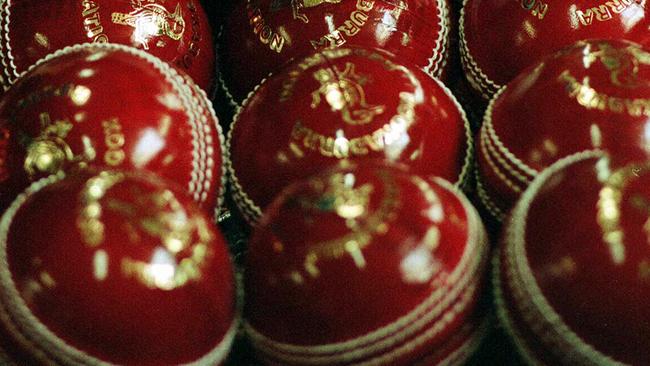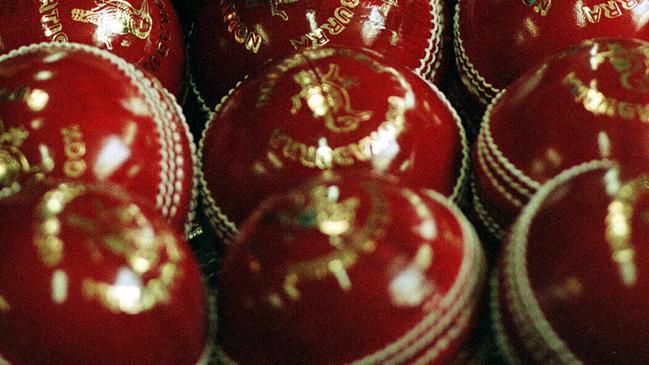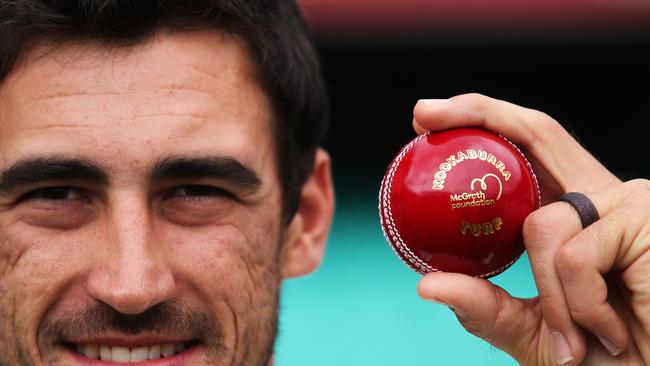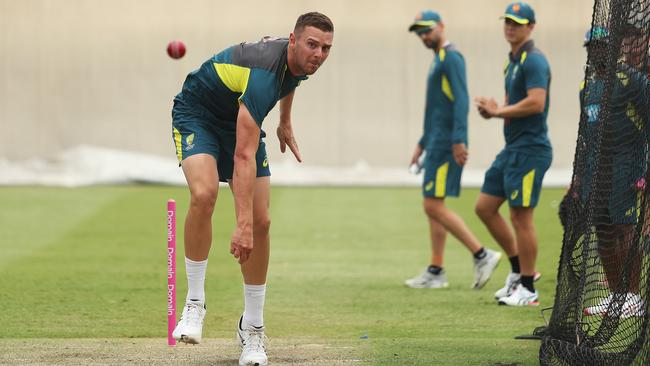Using wax instead of spit to shine cricket balls a non-starter for ICC committee chief Anil Kumble
Suggestions a ban on using salvia to shine balls be dealt with by players using wax instead has been shot down by ICC committee chair Anil Kumble who says it would undermine efforts to curb ball-tampering.

Cricket
Don't miss out on the headlines from Cricket. Followed categories will be added to My News.
International Cricket Council powerbroker Anil Kumble has urged teams to adjust to an interim ban on using saliva to shine the ball, suggesting that legalising an artificial wax would fly in the face of a recent ball-tampering crackdown.
The ICC’s cricket committee, chaired by Kumble and featuring Cricket Australia executive Belinda Clark, recommended last week that it should be illegal to use spit to work on the ball because of the risk of COVID-19 transmission.
The ICC Cricket World Cup 2019 has been brought back on KAYO! Watch the full matches or condensed replays. New to Kayo? Get your free trial now & start streaming instantly >
Josh Hazlewood (see below) and Pat Cummins are among those to have since expressed concern the change could mean Test cricket becomes even more of a batsman’s game whenever it returns.

Kookaburra has developed an artificial wax, allowing balls to be shined without using sweat or saliva.
Kumble admitted the cricket committee discussed the innovation, but ultimately didn’t want to proceed with something which could be viewed as tantamount to ball-tampering.
The ICC sought to stamp out tampering after the Cape Town sandpaper saga in 2018, having been deeply concerned when an arms race between teams wanting to generate reverse swing erupted in unedifying fashion.
“We have been very critical and we have been very focused on eliminating any external substances coming into the game,” Kumble told Indian broadcaster Star Sports.
“Obviously, (tampering) has had a great impact over the last couple of years.
“ICC took a decision but then Cricket Australia took even a more tougher stance on what happened during that series between South Africa and Australia, so we did consider that.

“Using wax is not allowed; we have never used external substances. We can use sweat.” The law change is expected to be rubber stamped in June by the ICC chief executives’ committee.
Kumble, who snared 619 Test wickets during a decorated career, quipped that spin might play a bigger role in games.
“Everyone is talking about (how) it will affect the pacers, grass should be left (on pitches),” the former legspinner said.
“Why not leave it dry and play two spinners?
“Of course, we all know saliva has been part and parcel of cricket for so many years. As bowlers, we used to apply saliva on ball, sometimes for grip also.
“But with this disease, it can also be asymptomatic. That is why we decided to ban it.”

India’s former captain and coach added the ban was “only an interim measure”. “As long as we have hopefully control over COVID in a few months or a year’s time, then I think things will go back to as normal as it can be ... these rules won’t apply,” Kumble said.
“As long as the medical advisory doesn’t change, the rule will stay.”
HAZLEWOOD PANS CRICKET’S SALIVA BAN
Josh Hazlewood has raised serious doubts over no-spit cricket, questioning the logic behind the controversial COVID-19 rule change, writes Ben Horne.
Law makers are set to make the use of saliva in shining the ball illegal in international cricket, leaving sweat as the only legal substance available to fast bowlers desperate to get the ball to swing.
Australian Test spearhead Hazlewood is lukewarm on the move and questioned what difference banning spit would make, when teams are already living in each other’s pockets on tour.

Hazlewood said in Australia’s set-up, the ball is purposefully shined by the player who sweats the least – and the new rule flips all the intuitions and habits of fast bowlers upside down.
Administrators are desperately fighting to get top level cricket back on the air, but the ball shapes as a major sticking point.
Hazlewood believes it would be safe to allow one designated ball shiner to use saliva.
“Every sport has to try something I guess. But if you’re sharing dressing sheds, you’re sharing buses, you’re eating together in the dressing sheds, you’re spending every minute together at the ground – you’re going to be inside a metre and a half of people all day long basically,” Hazlewood told The Daily Telegraph.
“I’m no doctor, but you could just have one person doing it.
“(With regular testing) you can control the XI players on your team pretty well, you’d be feeling pretty safe. The only difference would be when crowds do come back and it goes in and there’s different people touching it, that would be a different story … and you get another ball.
“I’d like saliva to be used obviously but if that’s what they’ve put forward, I guess everyone is playing the same game.”
Hazlewood said the habit of putting your fingers to your lips as a fast bowler as you return to the top of your mark would be as difficult to break as it would be for umpires to police.
Usually cricket teams try to avoid sweat on the ball – now it’s all they’ve got.
“Sweat probably makes it a bit wetter if that makes sense. Makes it a bit heavier,” said Hazlewood.
“Whereas saliva, you can control the amount you put on there a bit more.
“Usually (teams use) a batter who doesn’t sweat much (to shine the ball). But since we’re using sweat, who knows.
“For the big sweaters, it’s hard to get a little bit of sweat off your forehead to put on.
“ … Even once it comes back to you as a bowler It’s second nature to get just give it a little touch up (of saliva) if you see something, and that’s going to be hard to stop to be honest.
“And it’s a tough thing to monitor for sure.”
ICC Cricket Committee Chairman and former Indian great Anil Kumble has recommended that saliva presents an unacceptable medical risk for transmitting the coronavirus.

On the other hand, evidence indicated it was highly unlikely the virus would be spread via sweat.
It shapes as yet another tool taken away from fast bowlers in what is largely a batsman’s game, particularly in Australian conditions where often the Kookaburra ball has been as flat as the pitch.
However, while Hazlewood believes the change is unnecessary and tedious, he said it’s too early to say whether no spit would disadvantage bowlers noticeably more.
“I guess it’s going to be interesting to see if sweat is a massive difference to saliva,” he said.
“Some teams probably use sweat as it is, they probably use both to be honest. It’s going to be interesting to see how it works.
“I think you’ll use very small amounts because people have sweaty hands anyway and it gets on the ball … I don’t think this will have as big an impact as what people think.”
